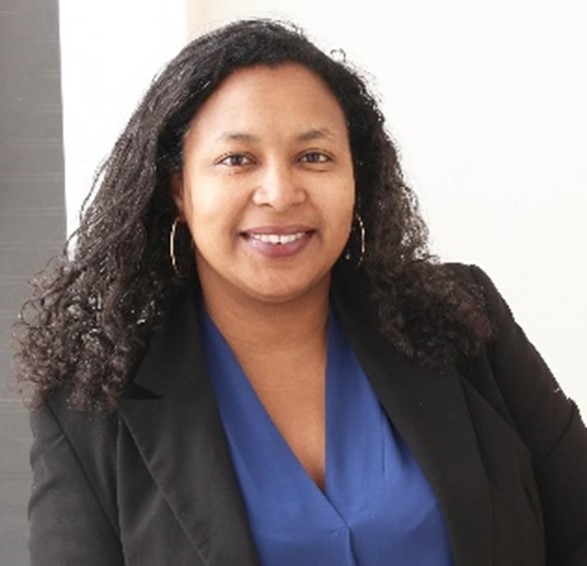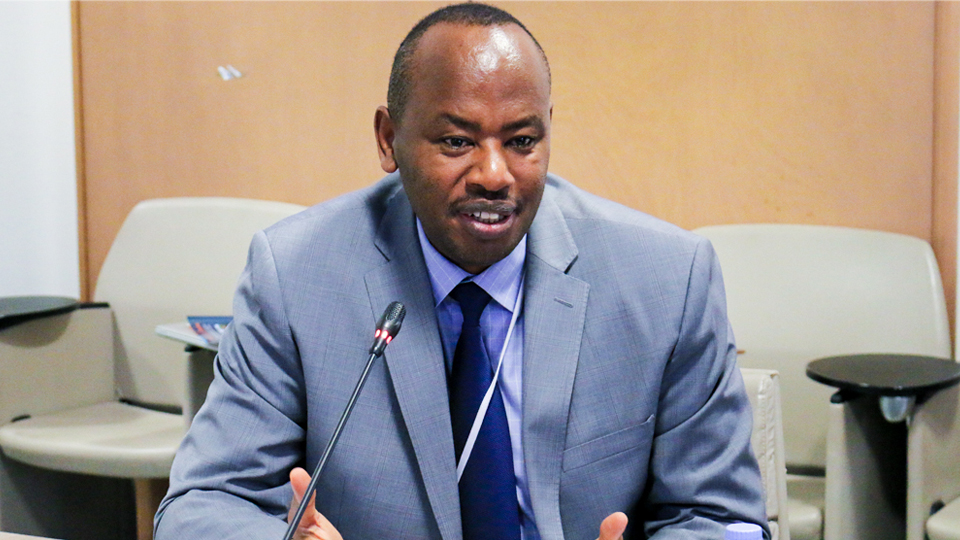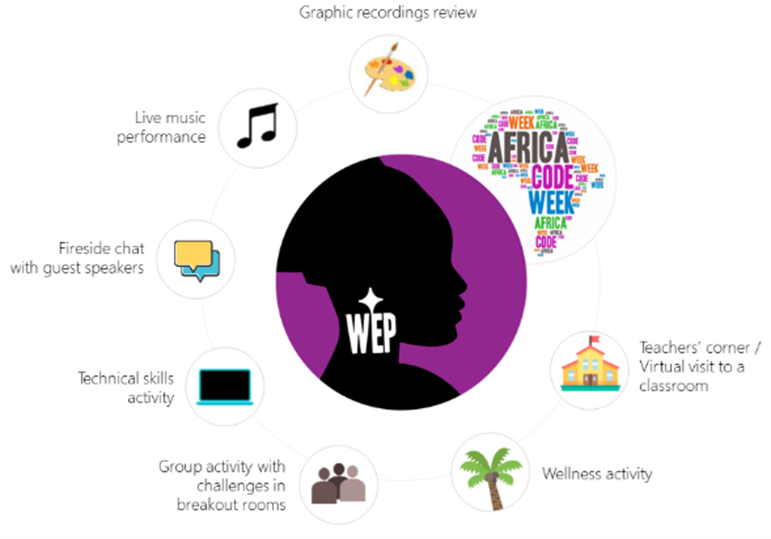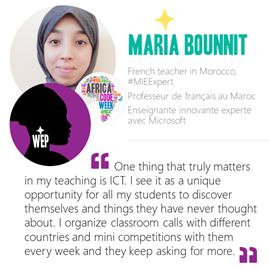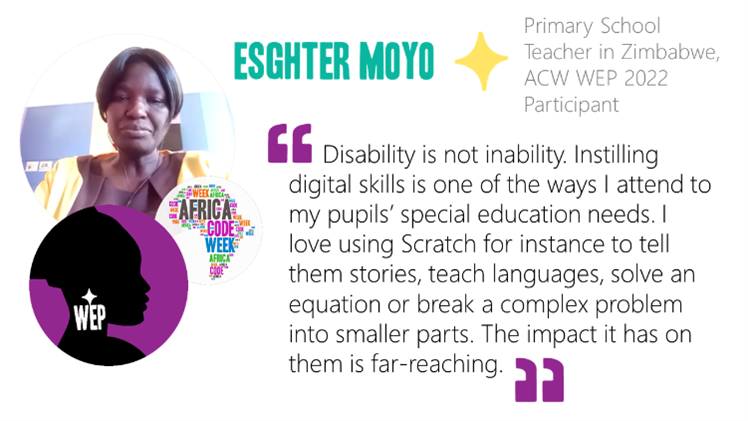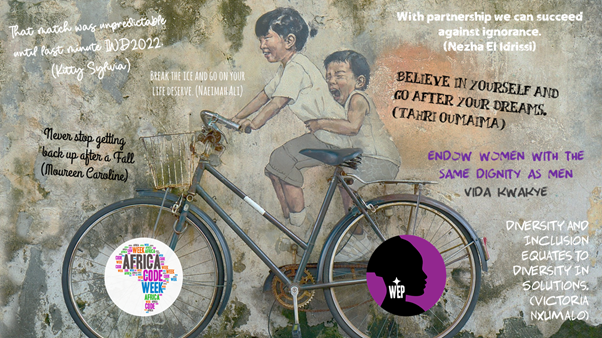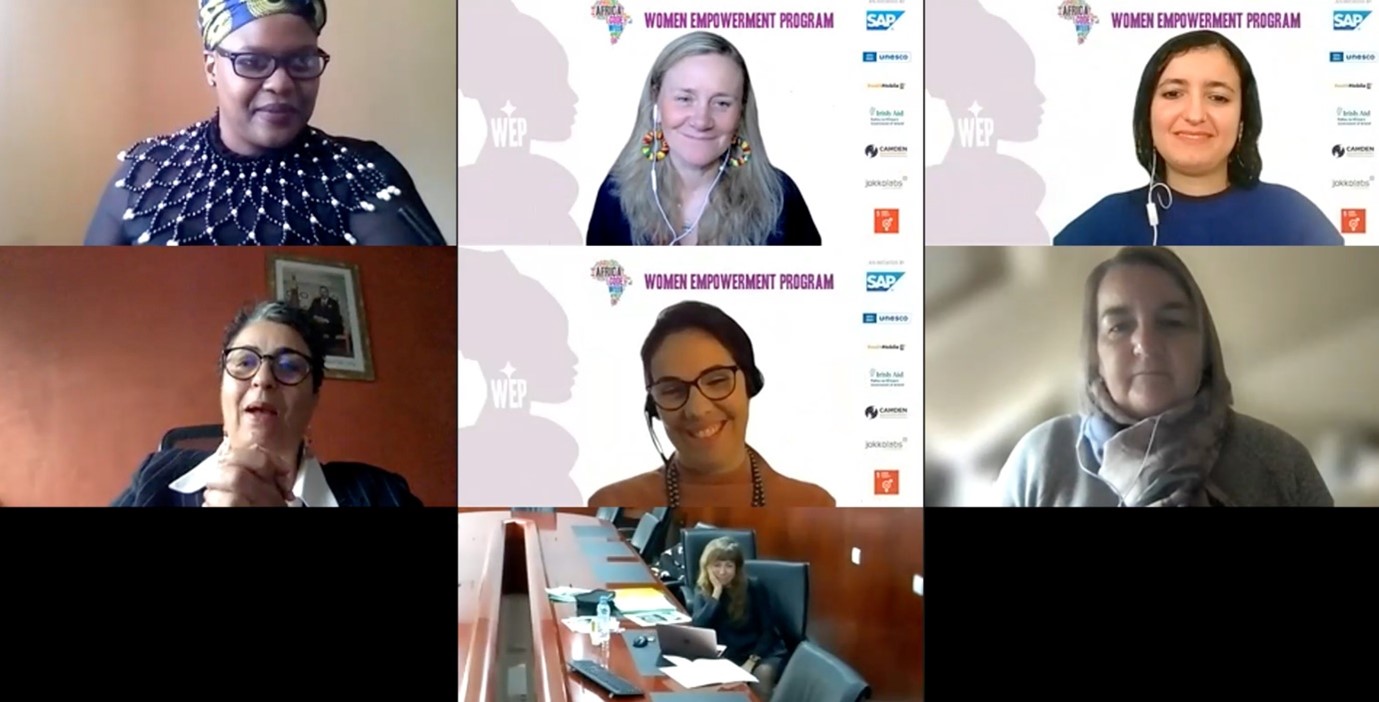Are you ready to power up your skills for the careers of tomorrow? As Africa embraces rapid digital advancement, you'll discover how coding and AI can catapult your future tech career to greatness and guide you toward shaping the continent’s development.
To help you get in on the action, we took a moment to chat with Alexandra van der Ploeg, Head of Corporate Social Responsibility (CSR) from Africa Code Week founding partner and leading software company—SAP. In this article, Alexandra explains how developing your coding skills, in conjunction with AI, can equip you to thrive in next-generation workspaces. While Generative AI primarily centers on the creation of fresh and unique content, Machine Learning places its emphasis on acquiring knowledge from data and making forecasts. You’ll find that both technologies have extensive applications across various domains, such as generating content, producing data, enhancing virtual reality experiences, predictive analytics, processing natural language, and recognizing images. Get ready to unlock the door to a multitude of possibilities for your future.
Q: How does coding and AI help young people develop problem-solving skills?
In combination, coding and AI, especially with the added depth of generative AI, foster a solid foundation for problem-solving. This fusion equips young learners with the ability to decipher real-world challenges and design innovative solutions, making them stand out in the tech landscape.
With coding, you'll write instructions for computers to perform specific tasks, while AI will empower you to build systems that can learn from data and make predictions. In addition, while coding lets you create software and applications that can revolutionize industries, AI will empower you to design intelligent products and services. Whether you're passionate about gaming, cybersecurity, data science, or designing futuristic tech solutions for African challenges, your skills will lead you toward the path you love the most. Your journey is yours to shape!
Q: How can young people in Africa prepare for careers in coding and AI?
Attaining skills for a career as a software engineer, data scientist, or web developer, for example, is significantly more accessible today since there are numerous bootcamps available, which can be completed either online or in-person as well as full- or part-time. Many of these can be done within three to six months. In fact, some bootcamp providers even match graduates with hiring companies. It is important to note that while having a qualification is a major first step for landing a tech job, having hands-on experience and an updated portfolio is expected by employers too. This can be done through internships or an industry-related part-time job. Our SAP Educate to Employ initiative is also making a big impact in this regard. The program educates young people between the ages of 16 and 24 on soft skills, foundational knowledge and SAP skills using the student zone on the SAP Learning site. Students are given the opportunity to learn about the latest SAP solutions for free to kickstart their career.
In addition to this, openSAP is another extraordinary expert-led free online learning tool. Learning is a lifelong journey, and this platform empowers students to upskill regardless of their location. Separate to SAP, numerous free coding assessment sites in the market enable students to complete projects to strengthen their skills and add to their portfolios. Ideally, your portfolio should have samples of work tailored to the role.
Q: What advice do you have for aspiring coders who are trying to stand out?
Network, network, network! The job hunt can be daunting, so becoming part of a supportive community is crucial. This can be done by joining relevant groups on LinkedIn, participating in hackathons, and attending networking events. It would also be best to ensure that your LinkedIn profile is updated. For inspiration, have a look at some of the profiles of people who have the kind of job you would like and see what information they include, along with the topics they discuss. Use this as a guide for compiling your own profile and building your personal brand.
It’s clear that when it comes to preparing for the future, learning never stops. As Africa’s future tech titans, you should embrace this as you advance your coding and AI skills. Stay curious, explore new technologies, and adapt to the ever-changing digital world. This growth mindset will fuel your success in your career journey ahead. As you shape Africa's tech destiny, remember that your skills are the keys to unlock our continent’s boundless potential and build a better future for all.
